- Segments
- Products and solutions
- Products and solutions
- Broadband
- Devices and accessories
- Applications
- Control Rooms
- TETRA and Tetrapol
- Customers
- Ecosystem
- How to buy
- Blog
- EN
Medical and healthcare professionals know that every shift is full of situations where proper communication is required. Reliable, accurate communication is at the core of operations – it really can make a difference. When people can communicate effectively, they will know what to do.
Can communication improve the quality of care while also making daily work more efficient? The answer is yes: communicating in groups instead of one-on-one is one solution.
Further benefits can be gained from hybrid communications which combine rich media and extremely reliable voice communication and a rich variety of features. Practical, efficient communications support the delivery of accurate treatment even in most demanding situations.
When your medical teams want to move from one-on-one phone calls to professional group communication, there are three ways to go.
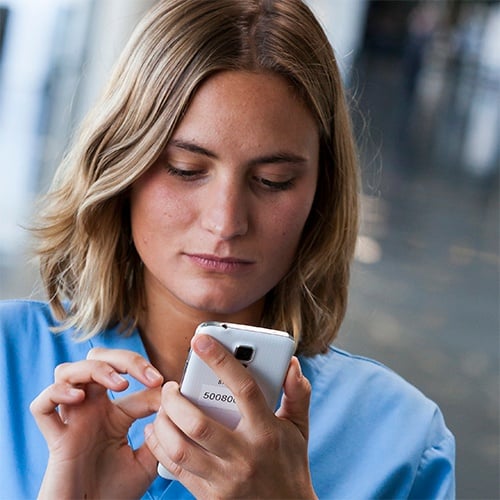
For your secure group communication, you can adopt Agnet 500 from Airbus. It is a cloud-based collaboration service and you will not compromise the security of your communication or the efficiency of your operations. You would need subscriptions and the app would work on your existing smartphones.
How to recognize a professional push-to-talk app? It is easy when you consider the tips in this blog post. You can also download a checklist to make things easier still.
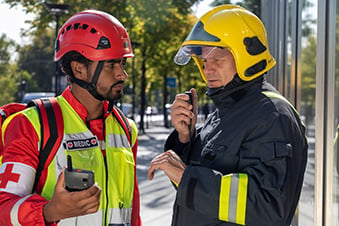
TETRA and 4G/5G can complement each other. Adopt the Agnet 800 smartphone app and your smartphone-carrying staff can communicate in their TETRA groups also outside the hospital campus. You would need subscriptions but not TETRA radios - that could be your preferred option. It would probably be possible to set up groups that would connect your teams to certain rescue organizations or the police.
Agnet 800 works seamlessly with the TETRA systems from Airbus, and you will not have to change existing processes and systems.
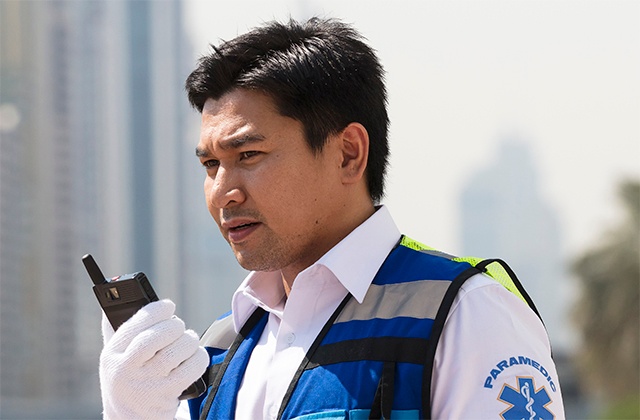
Could your organization or hospital join a public safety TETRA network? You would need subscriptions and TETRA radios. You could benefit from using the same network as rescue organizations or the police.
If you cannot join a shared network, you can build a local TETRA network to cover your operational area. This solution delivers secure group communication to medical teams, and the system can smoothly evolve towards broadband and LTE as well.
The teams would use TETRA radios for group communication.
Complement TETRA with Agnet, and smartphone users can participate in group communication. This means that the teams' operational area will extend beyond the hospital campus.
Secure and reliable communication has been proven to significantly cut response times and improve the operational efficiency of healthcare. For such positive results, all procedures must be planned beforehand. The best way to be able to work in exceptional situations is to be prepared, and the best way to prepare is to use as many of the same tools as in everyday situations.
More ideas on improving your preparedness for crisis and disasters in this blog post: "Effective communication boosts preparedness in healthcare and hospitals".
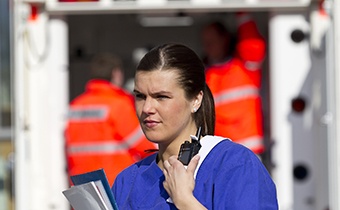
Emergency medical care and ambulances can greatly benefit from group communications. They could be more effectively in touch with teams in hospitals, who in turn would be better prepared to receive the patients.
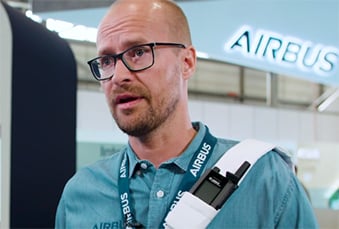
How to solve three problems everyone has with in-hospital communications? Watch the video and you will know the answer!
Group communication instead of one-to-one calls can really save time – and lives – in hospitals.
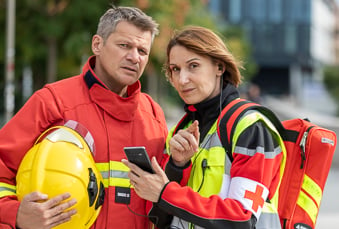
Group communications for pre- and in-hospital cooperation brings benefits. When communications can involve other public safety organizations as well, the benefits can be even greater.
This video shows how first responders – fire and rescue, paramedics and police - can work together better than ever before. They use secure group calls, video sharing and location information. All this gives them better situational awareness. So that they can deliver a better, faster response.
North Karelia Central Hospital has joined Finland's shared public safety network and uses Virve radios for in-hospital communications.
Doctor Heljä Vänni from this hospital reveals the most important benefit her team has gained from group communications over radio.
Group communications over radio have brought the North Karelia Central Hospital hospital many benefits. Doctor Heljä Vänni reveals the most important benefit.
Still not sure if group communication is right for you? Learn the truth about life-saving communications:
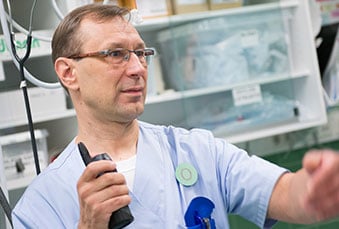
Alerting a trauma team used to take a lot of time at nurse Jari Hirvonen's hospital. He explains the astonishing difference that group communications has made.
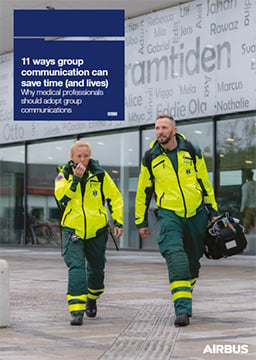
Medical professionals know that an extra second can be the difference between life and death. Communicating in a group instead of one-to-one can really save time. Download this guide now and learn how!
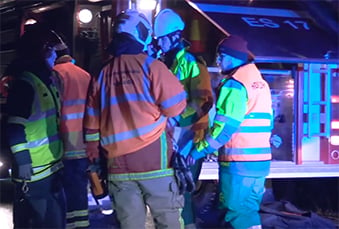
In less than five minutes, you will see how you could benefit from group communications over radio.